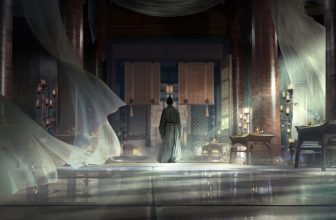
Over 70% of Japanese Gacha Games Shut Down Before Third Year, Research Shows
A new study has revealed that the majority of gacha and live-service games in Japan fail to survive past their third year of operation and shut down, highlighting growing challenges in the mobile gaming industry.
Game writer Ayashii Rinjin, who specializes in live-service and gacha games, recently shared research from a database tracking nearly 2,200 live-service titles. The data shows that more than 70% of these games ended services before reaching their third year. According to the research, the second year of operation is the most common time for games to shut down.
ソシャゲが3年で死ぬというソースを調べていてふと自分が集めた現在約2200件あるサービス終了リストの集計を見たら3年目までに終了したゲームが7割ぐらいで、ウ、ウワー!!ってなってる pic.twitter.com/k7N1u3whZy
— 怪しい隣人 (@BlackHandMaiden) November 12, 2025
The Japanese live-service game market is dealing with multiple pressures. Development costs are rising year by year, and the industry is experiencing a workforce shortage. The market has also become saturated with numerous games using similar gacha monetization systems. Industry professionals have described the current state of Japan’s live-service game scene as a “sinking Titanic phase.” Recent years have seen increased difficulty in launching successful projects, even those with substantial budgets.
Several notable games have announced or experienced early shutdowns. Tribe Nine, developed by Akatsuki Games and supervised by Danganronpa’s developers, is set to end services less than a year after launch. The NFT-based game TOKYO BEAST shut down approximately two months after release, reportedly due to issues with its monetization system.

Ayashii Rinjin’s data indicates that more games close within their first six months than reach their sixth or seventh year of service. However, long-term operation brings its own difficulties.
Square Enix’s Dragon Quest of the Stars announced its closure after 10 years of service, citing technical complications from the game’s accumulated volume and complexity. Japanese gacha game programmer and blogger Eihigh noted that “after 10 years of operation, a game’s code accumulates so much technical debt that it’s impossible to pay it back.”

With intense market competition and low survival rates, some developers have begun moving away from aggressive monetization toward more player-oriented strategies.
Chinese developers appear to be at the forefront of this market shift. Studios including Hero Game (Duet Night Abyss) and Naked Rain (ANANTA) have announced plans to remove gacha monetization entirely from their games. Whether Japanese developers will adopt similar approaches and how this might affect the domestic market remains unclear.






